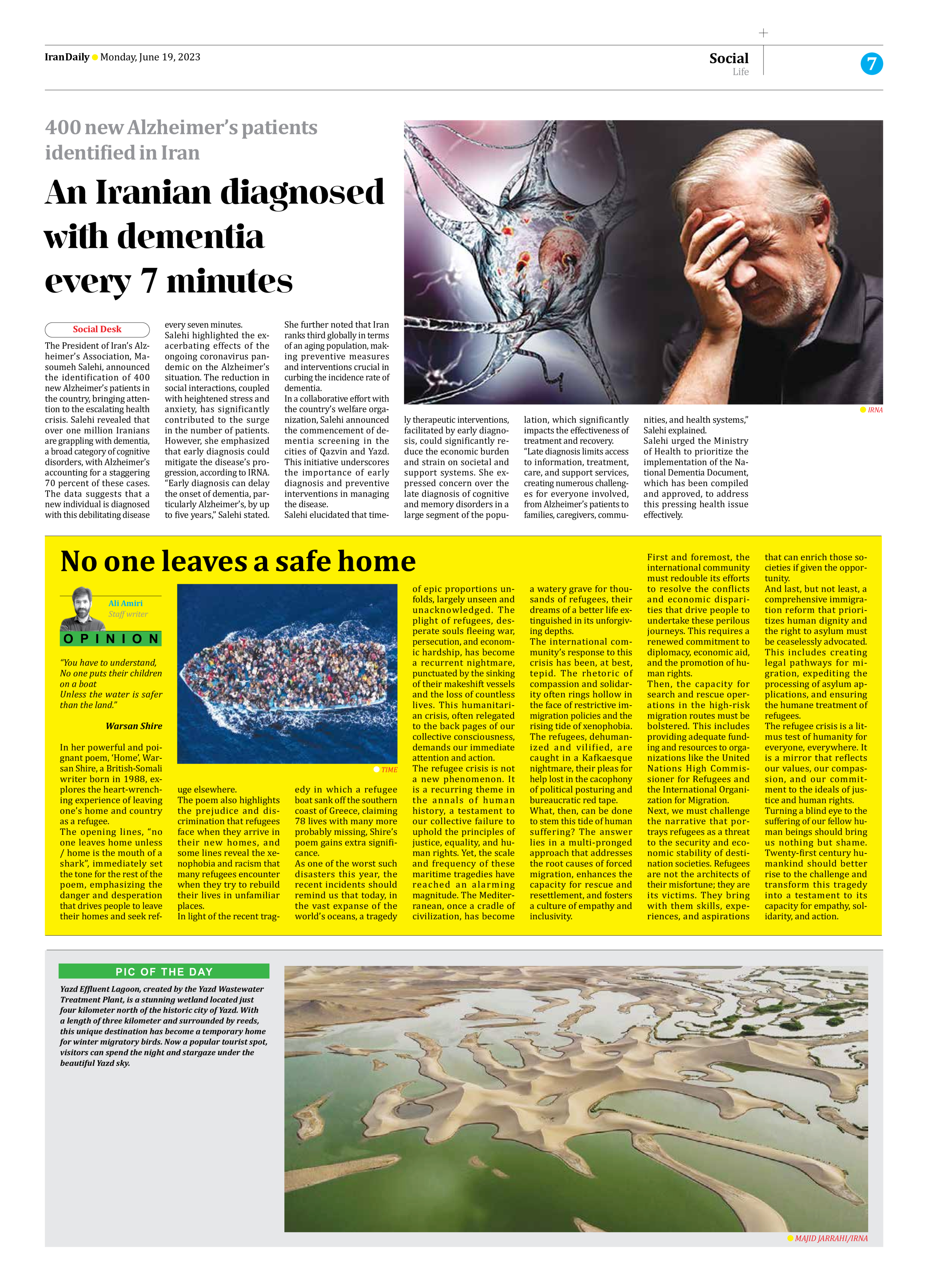
400 new Alzheimer’s patients identified in Iran
An Iranian diagnosed with dementia every 7 minutes
The President of Iran’s Alzheimer’s Association, Masoumeh Salehi, announced the identification of 400 new Alzheimer’s patients in the country, bringing attention to the escalating health crisis. Salehi revealed that over one million Iranians are grappling with dementia, a broad category of cognitive disorders, with Alzheimer’s accounting for a staggering 70 percent of these cases. The data suggests that a new individual is diagnosed with this debilitating disease every seven minutes.
Salehi highlighted the exacerbating effects of the ongoing coronavirus pandemic on the Alzheimer’s situation. The reduction in social interactions, coupled with heightened stress and anxiety, has significantly contributed to the surge in the number of patients. However, she emphasized that early diagnosis could mitigate the disease’s progression, according to IRNA.
“Early diagnosis can delay the onset of dementia, particularly Alzheimer’s, by up to five years,” Salehi stated. She further noted that Iran ranks third globally in terms of an aging population, making preventive measures and interventions crucial in curbing the incidence rate of dementia.
In a collaborative effort with the country’s welfare organization, Salehi announced the commencement of dementia screening in the cities of Qazvin and Yazd. This initiative underscores the importance of early diagnosis and preventive interventions in managing the disease.
Salehi elucidated that timely therapeutic interventions, facilitated by early diagnosis, could significantly reduce the economic burden and strain on societal and support systems. She expressed concern over the late diagnosis of cognitive and memory disorders in a large segment of the population, which significantly impacts the effectiveness of treatment and recovery.
“Late diagnosis limits access to information, treatment, care, and support services, creating numerous challenges for everyone involved, from Alzheimer’s patients to families, caregivers, communities, and health systems,” Salehi explained.
Salehi urged the Ministry of Health to prioritize the implementation of the National Dementia Document, which has been compiled and approved, to address this pressing health issue effectively.







